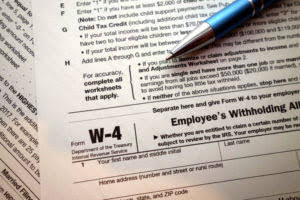Integrity as an Accountant

Integrity means that the accounting practices of a company adhere to a consistent set of principles such as GAAP or IFRS. When everyone follows the same accounting principles, stakeholders have greater faith that the story those financial statements tell is trustworthy. Accounting ethics is an important topic because, as accountants, we are the key personnel who access the financial information of individuals and entities. Such power also involves the potential and possibilities for abuse of information or manipulation of numbers to enhance company perceptions or enforce earnings management.

Certified Public Accountant (CPA)
Integrity, as defined by the Oxford Dictionary, is the quality of being honest and having a strong moral principle. This translates as the true foundation that establishes confidence between you and your client. Just Imagine a scenario https://www.bookstime.com/ in which financial records and statements are not accurate and trustworthy. This is why our profession as an accountant plays a crucial part in ensuring that stakeholders have access to accurate and trustworthy financial data.
- Transparency in accounting means providing all financial information in a clear, comprehensible, and accessible manner.
- Ethics in accounting significantly contributes to enhancing the corporate reputation and image of an organization.
- Following ethical principles not only helps in short-term success but also supports long-term achievements, earning trust from consumers and meeting stakeholders’ needs.
- Internal controls are typically comprised of control activities such as authorization, documentation, reconciliation, security, and the separation of duties.
- If the foundation lacks structural integrity, the whole thing may collapse or become unusable, like the Leaning Tower of Pisa.
What should an accountant do when faced with an ethical dilemma?
- Delivered as SaaS, our solutions seamlessly integrate bi-directionally with multiple systems including ERPs, HR, CRM, Payroll, and banks.
- Whistleblowing mechanisms, such as anonymous hotlines or reporting channels, allow individuals to raise concerns without fear of retaliation.
- Financial reports that have been manipulated or subject to misconduct in any way hurt not only the company’s financial strength but also its reputation.
- Detective controls are backup procedures that are designed to catch items or events that have been missed by the first line of defense.
- Internal audits play a critical role in a company’s operations and corporate governance since the Sarbanes-Oxley Act of 2002 made managers legally responsible for the accuracy of its financial statements.
- By utilizing best practices through our monthly bookkeeping, we keep your financials in order year-round, allowing us to identify tax-saving opportunities and maximize deductions.
Today, you’ll find our 431,000+ members in 130 countries and territories, representing many areas of practice, including business and industry, public practice, government, education and consulting. In this article, I thought that it would be valuable to shed some light and raise awareness about the importance of maintaining and upholding integrity in our profession. Thus, due care may require senior accountants to supervise and direct other accountants with less experience in the accounting profession. In today’s post, we’ll dive deeper into the concept of accounting integrity and ethics, exploring their importance and ways to uphold them in the workplace.
Professional competence
Accounting is the foundation that business owners, executives, investors, and other stakeholders depend on to make decisions. That’s what happened recently with German payments processor, Wirecard, who apparently fabricated about $2 billion in assets. Seven months later, they filed for insolvency when the fraud came to light. Professional skepticism is the mindset of questioning and critically evaluating financial information. Accountants should exercise professional skepticism to detect potential errors, fraud, or misstatements in financial records. Objectivity is essential for accountants to provide unbiased and impartial financial information.

Financial reports must be reliable and accurate because they supply vital information to stakeholders who make informed financial decisions. Ethics and ethical behavior refer more to general principles such as honesty, integrity, and morals. The code of professional conduct, however, is a specific set of rules set by the governing bodies of certified public accountants. Although the rules set out by different bodies around the world are unique, some rules are universal. Ethics plays a vital role in accounting by preventing harmful financial practices that could affect businesses negatively.

We simplify complex financial concepts, breaking them down into easy-to-understand pieces, empowering you to make informed decisions for your business. It could be easy to assume that potential employers will trust that you are honest and integrity accounting that you will take care of their finances with adherence to the highest moral standards. It is possible that demonstrating integrity and good character can give you the competitive advantage you need when you are seeking accounting jobs.
Preserving financial integrity and building trust
What Do Clients Look for in Auditing Firms?

